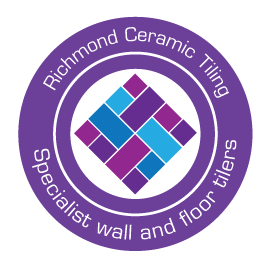F.A.Qs
Below you will find some commonly asked FAQs that may help you decided on what services or work you need to ask for.
Does a tiler do waterproofing?
Since the British Standards Institute changed its codes of practise, all substrates should be waterproofed before tiling which includes both domestic and commercial locations. This is a positive change to the standards that benefits homeowners and increases the quality of workmanship carried out by tiling contractors and companies.
How much does a tiler charge?
The cost of tiles and employing a tiler to lay those tiles can vary depending on the style of tile and the materials used. Tilers will either charge per square metre or per day, so it is advised to confirm this before any works commence.
What does a tiler do?
A tiler is someone who will lay tiles on floors and walls. The tiles are used to cover an interior or exterior surface such as a floor, wall or ceiling. The most common place to find tiles installed would be in the kitchen or bathroom. This is due to the water resistant properties that tiles contain. Tiles can also be found in outdoor spaces such as gardens, patios and even swimming pools.
Can you paint tile?
Yes, you can paint tile! In fact, there is specialist tile paint that you can use to ensure your tiles get the best finish possible. However there are some things to consider before painting your tiles. Tiles are not designed to be painted on and are often glazed to repel things like dirt, dust and grime. You need to ensure that you sand any tiles before painting to ensure the paint sticks to the tile and gives a matte finish. You also need to ensure the tile is clean and any dirt or grime has been cleaned off prior to painting. Lastly, you need to ensure you are using specialist tile or epoxy paint to ensure you get the best results.
What information is included in my quotation?
The scope of work (a description of the project).
Details of the materials supplied by York Pro Tiling and if applicable by the client.
Dates we are available for your project.
How long the project will take.
How much it will cost.
Any other relevant information.
Will you install tiles that I purchase?
Yes, Richmond Ceramic Tiling regularly installs client bought tiles. However we do prefer to be involved before the tiles are purchased to ensure they are suitable for the intended purpose and the quantity purchased is sufficient for the project.
Prior to buying the tiles you should also establish the supplier returns policy and ensure all the tiles are colour matched i.e. from the same production run/batch.
What are the benefits of using tiles?
Tiles are fireproof and don’t create toxic smoke in the event of a fire
Tiles are colour-fast
Tiles are water resistant
Tiles are rot resistant
Tiles are odour resistant
Tiles are insect resistant
Tiles are hypoallergenic
Tiles are available with slip resistant surfaces
Tiles are volatile organic compound (VOC) free
Tiles are formaldehyde-free
Tiles are PVC free
Tiles are durable thereby reducing any environmental impact
Tiles contain no allergens
Tiles are low maintenance
Tiles are affordable
Tile design options are endless
Tiles are recyclable
Tiles are scratch and crack-resistant
Tiles are highly resistant to chemicals
Tiles are anti-static
Tiles when laid professionally increase property value
What type of bathroom tile should I choose?
Not all tiles are suitable for the bathroom because they get exposed to condensation and moisture. Glazed ceramic or porcelain tiles are the most practical options.
Ceramic tiles are affordable and simple to look after. They aren’t as hard wearing as porcelain tiles, but as bathrooms are not high traffic areas, ceramic tiles are perfectly fine to use on your floors and exceptionally good on walls.
Porcelain tiles are denser and tougher than ceramic, and also easy to look after. They’re suitable for both floors and walls. If you’re after a natural stone look, you can achieve this with full body porcelain tiles that look almost identical to natural stone tiles.
When it comes to your bathroom floor, make sure you choose a tile that has some slip resistance to avoid any future accidents.
If you have a small bathroom and want to create the illusion of a bigger space, consider using plain coloured or subtle patterned tiles and stick to a single shade. Avoid too many patterns or grout lines, as this will only make your bathroom appear smaller.
Should I do full height tiling?
It all depends on the size of your bathroom and your budget. The benefits of tiling your whole bathroom is that your painted walls don’t get exposed to the humid environment and moisture, which can lead to mould, harbour germs and require more regular maintenance.

Contact Us
Call
07830676886
Area Covered
Hampshire, Dorset, Berkshire, Wiltshire & West Sussex
